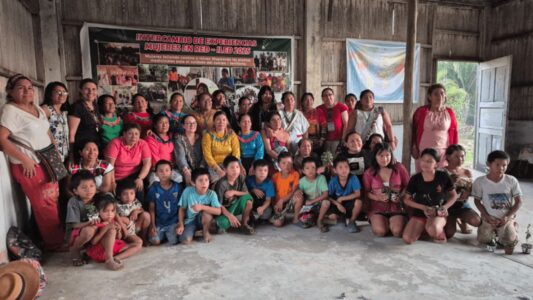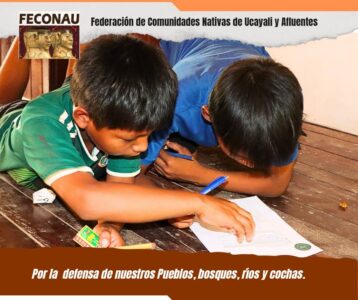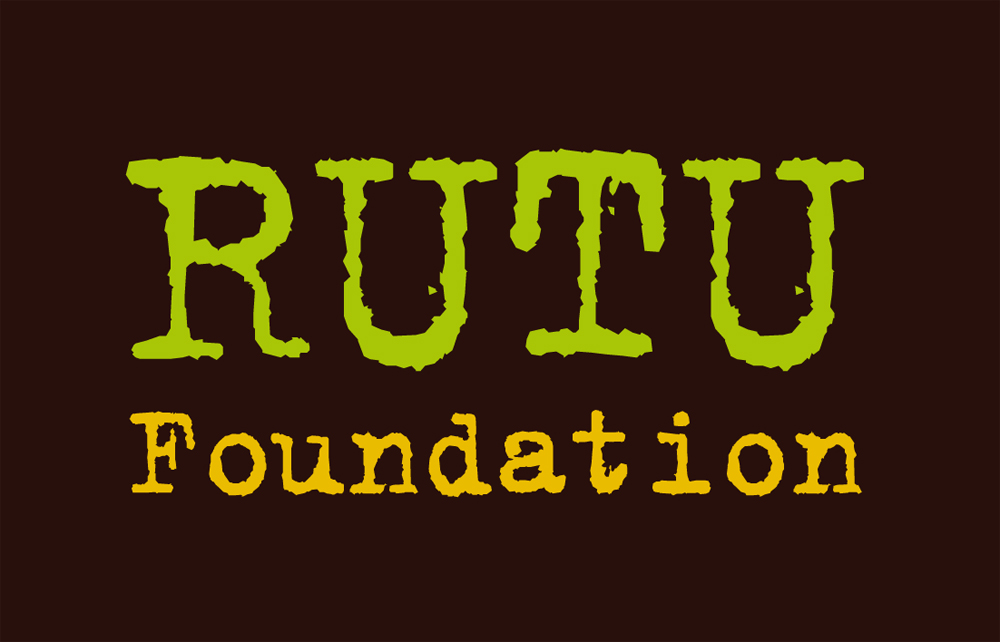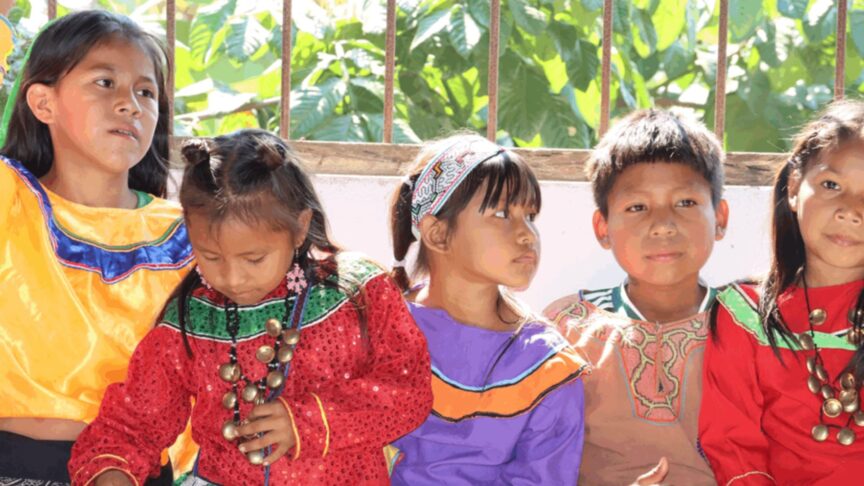The Global Indigenous-Led Education (ILED) Network works worldwide to preserve and share Indigenous knowledge, languages, and cultures. With the support of GAGGA and FGG, we’ve made significant strides from March to September 2025 in empowering women, youth, and communities across our network.
Supporting the Indigenous Women’s Exchange in Latin America
In August 2025, the Indigenous Women’s Exchange concluded in Santa Clara de Yarinacocha, Peru. Titled “Mujeres tejiendo camino y raíces: mapeando las plantas medicinales para el cuidado del cuerpo territorio” (Women Weaving Paths and Roots: Mapping Medicinal Plants for the Care of the Body and Territory), the exchange brought together Indigenous women from Peru, Mexico, Colombia, Panama, Costa Rica, and the Netherlands.
Over three days, participants shared medicinal plants, healing practices, and the cultural and spiritual knowledge behind them. Workshops focused on:
- Caring for the body with medicinal plants during epidemics;
- Using medicinal plants for epidemics, pregnancy, childbirth, and postpartum care;
- Passing knowledge to younger generations.
Children actively joined through games, drawings, and art, learning the value of plants and the importance of protecting life and territory. Each delegation received a didactic suitcase, documenting plants’ characteristics, uses, and dosages—ensuring knowledge preservation for future generations.
The gathering included a visit to the Community Botanical Garden of Santa Clara de Tarinacocha, (created with the support of the ILED network) emphasizing conservation and the exchange of medicinal plants across communities. Participants pledged to:
- Strengthen medicinal plant use in their communities
- Share knowledge with younger generations
- Defend and Preserve ancestral wisdom
- Promote cross-community exchange of plants
This gathering strengthened the voices, organization, and spirit of the wise women, who returned to their communities motivated and with new learnings to continue caring for life, health, and territory.
Two main approaches guided the exchange:
- Cuerpo-Territorio Mapping (Counter-Cartographies): Systematizes traditional knowledge about land, health practices, and the relationship between the body and territory.
- Didactic Suitcases: Developed with researcher Adriana Bolaños, these tools allow participants to continue teaching and sharing knowledge in their communities.
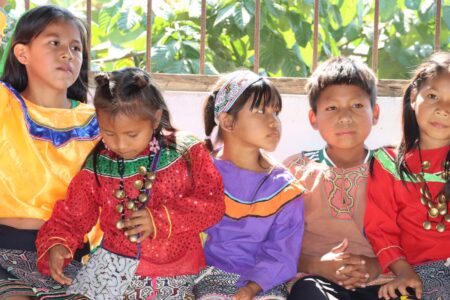
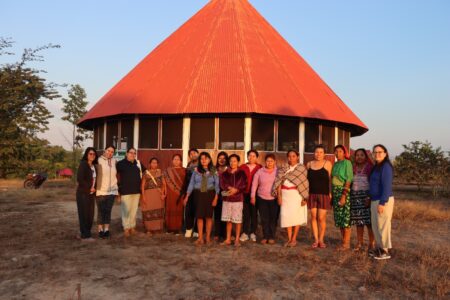
The methodological commission, composed of Indigenous women, FECONAU (ILED partner), ILED facilitators, and experts, coordinated the process. Weekly meetings ensured the exchange was Indigenous-led, participatory, and aligned with community priorities.
Parallel initiatives include:
- An online micro-conference connecting ILED women from Asia and Africa to share lessons and co-create a global agenda.
- A fundraising and awareness campaign, including a possible online ‘conversatorio’ on life care and collective well-being.
This exchange strengthened the voices, knowledge, and leadership of Indigenous women, leaving them motivated to continue caring for life, health, and territory.
